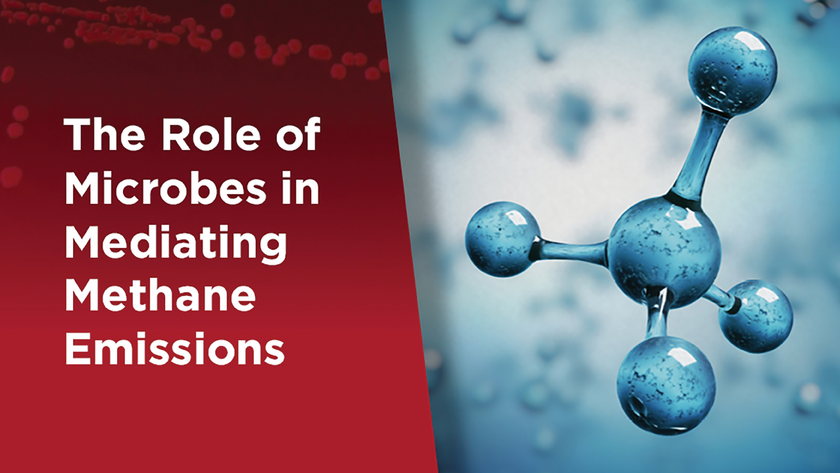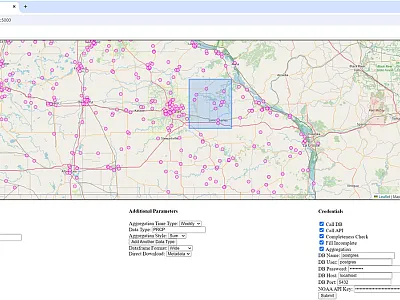American Academy of Microbiology Releases New Report on Methane Emissions

The American Academy of Microbiology, the scientific think tank and honorific leadership group at the American Society for Microbiology (ASM), has released a new report, The Role of Microbes in Mediating Methane Emissions (https://asm.org/Reports/Role‐of‐Microbes‐in‐Mediating‐Methane‐Emissions). The report highlights recommendations for furthering the scientific community’s understanding of microbial processes of methane production and consumption to mitigate emissions and address climate change.
Microbes can influence climate change through biogeochemical cycles that consume or produce greenhouse gases. Increased levels of methane are a main driver of rising global temperatures, and methane’s warming power is about 80 times more potent than carbon dioxide over a 20‐year period. Reducing methane is an effective way to slow the rise of global temperatures in the near term. Microbes are major consumers and producers of methane, and understanding the diverse metabolic capabilities of microbes can help scientists better develop microbial solutions that address methane emissions.
“By understanding the roles of microbes in mediating methane emissions, we open up a wide range of promising solutions to address the climate challenge,” says Vanessa Sperandio, Chair of the American Academy of Microbiology’s Governors. “More than ever, the scientific community needs to work together to urgently bring forward these solutions.”
The report is the result of the discussions and deliberations of experts at a colloquium held on May 31 and June 1, 2023, organized by ASM and the American Geophysical Union with additional support from SSSA. The participants’ expertise covered a variety of disciplines and sectors. They identified gaps in knowledge to be explored further and highlighted potential strategies to address methane emissions. The recommendations in the report aim to develop solutions that leverage microbes to mediate methane emissions from four main sources: enteric fermentation in ruminant animals (such as cows or sheep), animal wastes, rice paddies, and landfills. The report includes the following as major recommendations to address methane emissions:
Recommendations
Expand Foundational Knowledge of Microbes for Mitigating Methane
- Expand academic training in anaerobic microbiology and physiology to increase the number of scientists skilled in isolating and characterizing methanogens.
- Prioritize work on determining rumen microbiomes supporting hydrogen budgets for lower methane emissions from ruminants.
- Establish microbiome collection repositories for the community and continue research for a deeper understanding of the relationship among microbes in the microbiomes of the rumen, animal wastes, agricultural crops, and landfills.
- Increase investment in genetic tools and non‐model organism development.
Incorporate Microbial Understanding into Methane‐Reducing, Climate‐Smart Agriculture Practices
- Expand research on plant‐microbe and animal‐microbe interactions to inform future agricultural practices.
- Document performance of extant microbial inocula and identify management practices that enhance survival and persistence of inocula in agricultural soils.
- Investigate use of redox‐active compounds to add to manure to reduce overall methane emissions.
- Recognize current efforts and work with agricultural producers to identify climate‐smart practices.
Increase Transdisciplinary Collaboration Across Sectors
- Demonstrate the value and support further investments of transdisciplinary research consortia that harmonize data collection to allow for greater data sharing and take a holistic approach to addressing climate change.
- Strengthen partnerships with industry and the private sector to advance research and innovation, especially on microbe‐based products.
- Foster science communication efforts to encourage microbiologists to highlight the importance of microbes in climate change and demonstrate the need for microbial solutions to reduce methane emissions with diverse stakeholders, including other scientists, media, public officials, etc.
- Collaborate with community stakeholders to understand cultural values and local customs to co‐develop research priorities and solutions.
This colloquium is part of the Academy’s five‐year Climate Change and Microbes Portfolio (https://asm.org/Academy/Climate‐Change‐and‐Microbes‐Scientific‐Portfolio) that focuses on furthering scientific understanding of climate change and microbes. To complement the new report and serve as a practical next step, ASM released a Microbial Methane Mitigation research roadmap in December that outlined current knowledge gaps and first‐order research priorities for experts to use microbes to combat increasing methane emissions. Learn more about the impact of microbes on climate change on ASM’s Microbes and Climate Change resource page (https://asm.org/Resource‐Pages/Climate‐Change) and read the full colloquium report on asm.org.
Text © . The authors. CC BY-NC-ND 4.0. Except where otherwise noted, images are subject to copyright. Any reuse without express permission from the copyright owner is prohibited.







